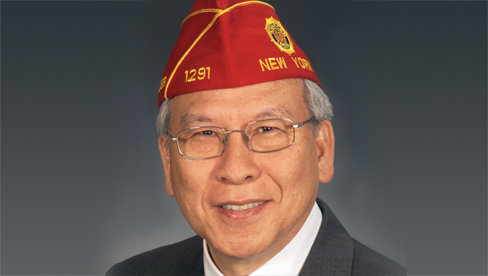
H.R. 1775 focuses on the harm caused by military fraud rather than the diminishment of awards for military achievement.
When Timothy Michael Poe appeared on the reality TV series “America’s Got Talent,” he had an inspirational story to match his singing ability. Claiming he’d been hit in the head by a rocket-propelled grenade while serving as an infantryman in Afghanistan, Poe had overcome his resulting speech impediment by singing in the shower. Throughout the televised competition, he wanted to demonstrate before sympathetic fans that any disability could be overcome with hard work.
It was a moving and emotional story. It was also a complete lie.
Poe had in fact served in Afghanistan for 32 days before leaving for medical reasons. He had been a driver, not an infantryman, and his injury resulted from falling off a truck, not from an RPG attack. The photographs he used to document his service in Afghanistan were of a different soldier altogether.
Predictably, the men who served with Poe in the 114th Transportation Company – and the man whose pictures Poe was using to buttress his story – were not happy. They contacted The American Legion to dig a little deeper into Poe’s background. His was a case of stolen valor, plain and simple, with the clear objective of profiting from it.
Until June 28, the Supreme Court had never held that intentional false statements of fact are worthy of constitutional protection. The Legion still recognizes the harm caused to those with honorable military service by fraudsters who lie about their military achievements, as Poe did on “America’s Got Talent.”
That is also why Congress passed the original Stolen Valor Act, which illegalized the making of false military-service claims. Opponents wrongly described the act as a slippery slope toward outlawing barroom boasts. Instead, it simply recognized congressional authority under the Constitution to safeguard and protect the reputation and meaning of military decorations and medals. A new version, introduced in 2011 in the form of H.R. 1775, focuses on the harm caused by fraud rather than the diminishment of awards for military achievement.
Prior to the U.S. Supreme Court’s 4-2-3 plurality ruling to overturn the Stolen Valor Act, one circuit court held that “false statements of fact do not enjoy constitutional protection, except to the extent necessary to protect more valuable speech. Under this principle, the Stolen Valor Act does not impinge on or chill protected speech, and therefore does not offend the First Amendment.” The nation’s highest court saw it differently this time, but left the door open to a “less burdensome” remedy to the problem of phonies trying to profit from false claims of service.
That remedy is the more narrowly tailored 2011 version of the Stolen Valor Act. There have always been limitations to free speech. The law properly prohibits deceptive advertising, fraud, impersonating a police officer, perjury and defamation. Lying to the public about military service to fulfill personal ambitions should be included on such a list.
Individuals who lie about military honors to gain tangible benefits should be punished not only because their untruths undermine the importance of military achievements, but also because harm can be done when someone is elected or gets a big record deal, a better job or public support on the basis of a lie.
- Magazine

